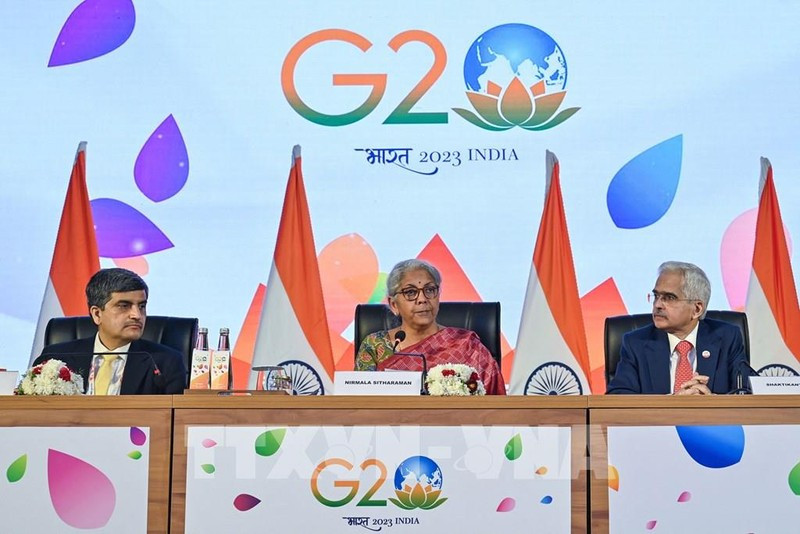The recent G20 Finance Ministers and Central Bank Governors Meeting took place in Bengaluru, in India's Karnataka state, amid an improved outlook for global growth recovery since the G20 Summit in Bali (Indonesia) in November 2022, when several economies were on the verge of recession. According to the World Trade Organisation (WTO), the global economy is much better than predicted a few months ago. The International Monetary Fund (IMF) forecast that global GDP growth can reach 2.9% in 2023, higher than the forecast of 2.7% made in October.
Recognising the positive signs, the G20 Finance Ministers once again affirmed their commitment to promoting the global economy towards strong, sustainable, balanced and inclusive development. The financial leaders agreed to continue coordinating on macro policies and support the implementation of the 2030 Agenda for Sustainable Development of the United Nations. The heads of central banks also pledged to achieve the goal of stabilising prices, ensuring inflation at an acceptable level.
However, geopolitical tensions and debt restructuring problems made the conference in Bengaluru end without a joint statement. India published a summary of the conference, which summarised the operations of the two-day conference.
Highly valuing the efforts made by the host India, Deputy Prime Minister of Spain Nadia Calvino said, that the G20 has made progress on several issues, but the discussions to find a common voice in solving global challenges have become difficult when the conflict persists. British finance minister Jeremy Hunt said: “There is no choice between whether we focus on Ukraine or focus on other important global issues like climate change”. If global security threats are not resolved, there can be no progress in these other areas, Hunt added.
In addition to geopolitical tensions, the G20 has also failed to make progress in negotiations on debt restructuring. Chinese Finance Minister Liu Kun called on the G20 to conduct a fair, objective and in-depth analysis of the causes of the global debt problem, to work towards comprehensive and effective solutions. IMF Managing Director Kristalina Georgieva said that Zambia, the first African nation to default on its debt, has made impressive economic reforms and deserves progress in negotiations with creditors. The failure of creditors and the private sector to make specific commitments could prolong the stalemate that has stalled debt restructuring programmes in countries like Zambia.
Indian Prime Minister Narendra Modi called on the G20 to focus on the most vulnerable citizens by creating a comprehensive agenda. Pointing to a series of current challenges such as food and energy crises, eroded confidence in international financial institutions, and disruptions in supply chains, Prime Minister Modi said strengthening confidence is the leading task for the group of leading economies in the world at this time.
















